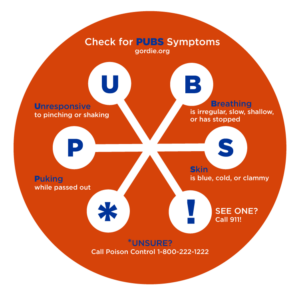Scenario 1
John and Kyle attend an off-campus party with several friends. John and Kyle are drinking together, when John notices that Kyle begins to be unresponsive. John calls 9-1-1; though both Kyle and John were drinking underage, they were able to have Broncos Act applied because John called for help and stayed with Kyle while he waited for help to arrive.
Scenario 2
Rylie and Kelsey were coming back from a Boise State football game. When entering Chaffee Hall, Rylie collapsed in the hallway by a Resident Assistant. The RA called 9-1-1 for Rylie. Rylie and Kelsey were unable to use the Broncos Act due to the fact that they did not call for help and the RA was responding to the incident.
Scenario 3
Lexi is walking back from an off-campus party and begins to feel ill by the Alumni and Friends Center. She calls Public Safety for a Security Escort and lets them know she had too much to drink and would like to be evaluated by EMS. Lexi is able to have Broncos Act applied to her situation due to the fact that she sought out help for herself.
Scenario 4
Greg is with a group of friends in the Student Union building. They decide to walk over to B Plaza and shotgun several beers to celebrate the end of the semester. While at the Plaza, a police officer pulls over to check on a student who is lying by the B. The officer ultimately cites each student for underage drinking. The Broncos Act policy cannot be applied since the police officer had to respond to the students’ behavior.
